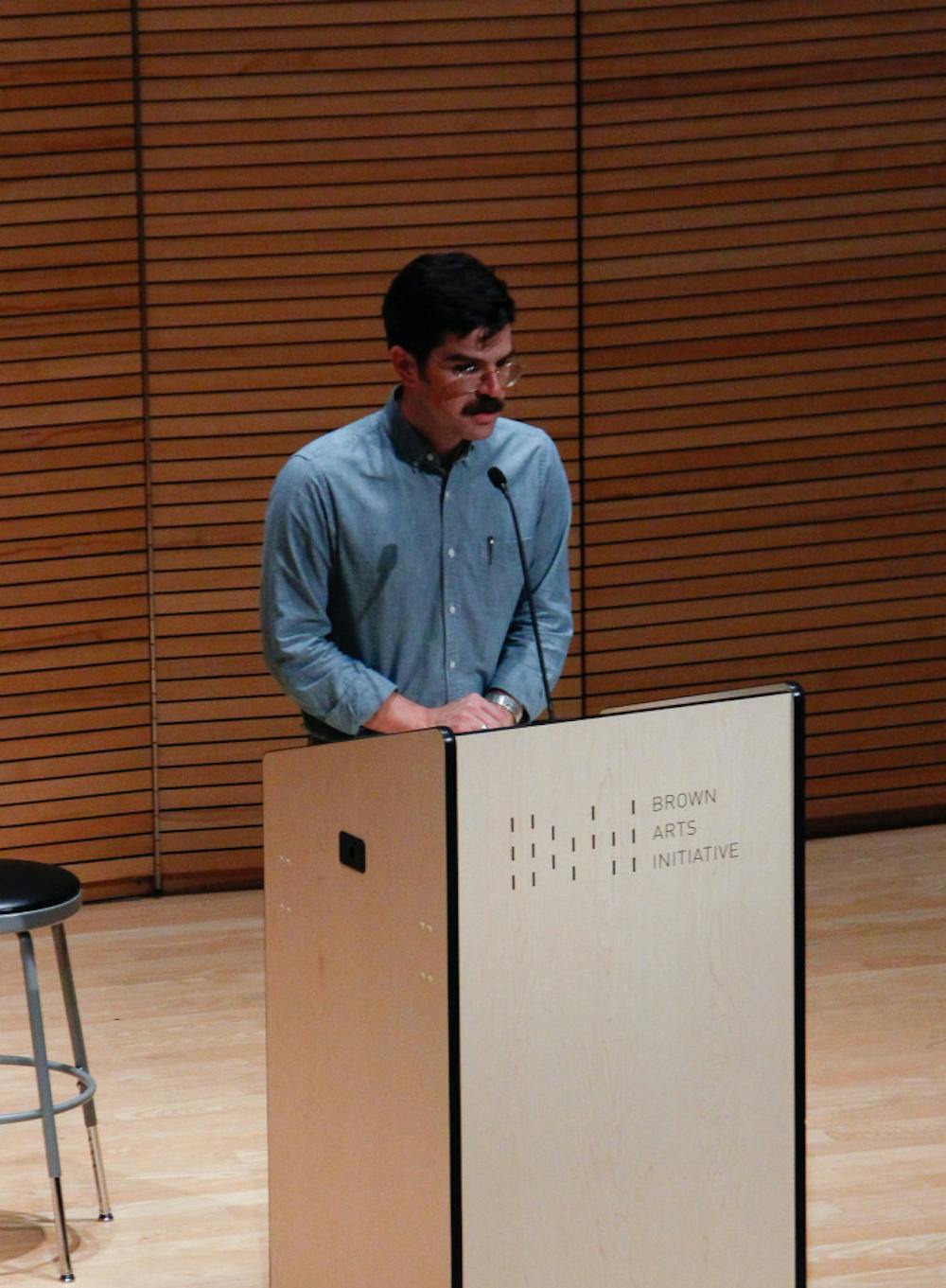Mexican-American writer Francisco Cantú spoke of the challenges migrants face at the United States-Mexico border and the importance of hearing and sharing their stories at the Granoff Center for the Creative Arts last Friday night.
Cantú, who worked as a Border Patrol agent from 2008 to 2012, discussed the “institutional indifference” of U.S. government agencies like the Border Patrol toward migrants. His experiences working on the border and helping an immigrant friend fight deportation after Cantú’s resignation from the Patrol provided the basis for his memoir, “The Line Becomes a River,” published last year.
Cantú’s lecture detailed how migrants who suffer or die while attempting to cross the border often remain anonymous, their lives abstracted in the public discourse about immigration. Cantú said he was moved when he heard the name of a man who died traveling with last year’s migrant caravan from Central America on the radio. He contrasted hearing that name with the first time he witnessed a migrant’s death as a Border Patrol agent. The latter man’s name never made the news, which is almost always the case, Cantú said.
“We must first reject the casual dismissal of migrants’ lives, by grieving their deaths, by speaking their names, by choosing to see them, hear them and amplify their voices and stories,” Cantú said.
The writer also urged Americans to translate the outrage they may feel about injustices at the border into action. “To feel empathy is not enough,” he said. “In the end, our feelings and our tears are useless unless they compel us to act in a way that might someday improve (migrants’) situation.”
Cantú’s memoir has sparked criticism among immigration activists due to Cantú’s previous employment as a Border Patrol agent.For example, in “The Line Becomes a River,” Cantú recounts various incidents of fellow Border Patrol agents abusing migrants, slashing their water bottles and decorating cacti with women’s underwear.
When questioned about his motives for joining the Border Patrol, Cantú acknowledged at Friday’s talk that his decision was “rooted in a lot of naiveté.” He said that he had believed that he could effect positive changes from within the agency, but ultimately realized that this was a “profound underestimation of (its) power.”
Elizabeth Rush, visiting lecturer in the Department of English and an organizer of the event, said she considered the controversy around Cantú’s work when inviting him to speak, but believes his voice is an important addition to the conversation about immigration. Criticisms that originate from within institutions that wield power have the potential to move audiences who do not typically find fault in these institutions, she said.
“‘The Line Becomes a River’ conceives of an audience beyond the echo chamber,” Rush said. “That is an important thing to consider given the increasingly divisive days we occupy.”
Mariajose Rodriguez, a third year Ph.D. student who attended the lecture, said it made her think about the relationship between politics and literature, and where to draw the line between the two when crafting a work like Cantú’s memoir. “It’s a very personal choice — where does politics start and end in art or literature?” she said.
Cantú donated a portion of his speaker’s fee to Dorcas International Institute of Rhode Island, a Providence-based organization that provides services and representation for immigrants and refugees. The event Friday night was the third in the 2019 Nonfiction@Brown lecture series.





